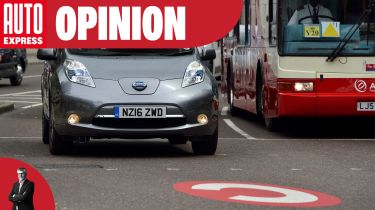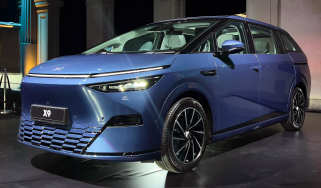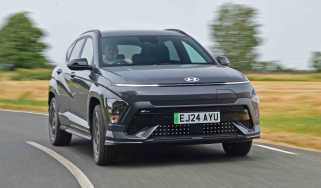The London Congestion Charge increase is another hammering for the humble motorist
Editor Paul Barker thinks the London Congestion Charge price increase is another example of motorists being seen as a cash cow by Governments

Another week, another kick in the wherevers for the humble motorist. Transport for London has decided the time is right for a rather chunky 20 per cent increase in the capital’s Congestion Charge from next January, pushing it up to £18 per day.
TfL suggested the hike was timely, in light of increasing inflation, and framed the extra kick aimed at electric vehicles as a good thing. It says replacing the current EV exemption with a 25 per cent discount will prevent traffic levels from getting worse as EV sales rise.
But it’s just another blatant anti-car measure, following the introduction of tolls on the new Silvertown Tunnel and the Blackwall Tunnel – the latter having been free for more than 125 years. And that’s on top of April’s VED road tax changes, which hammer EVs through the so-called ‘expensive car’ supplement – £40,000 pretty much tallies with the average cost of a new car in 2025 – and various other aggressive anti-car moves. At least VED is supposedly under review, and may be addressed later this year.
Drivers have always understood they need to pay their way, and have repeatedly been seen as a cash cow by Governments. Yet it feels like the authorities are hunting them down more than ever. Oxford seems to be leading the way in wanting to banish private cars, but there are many other examples. In fact, it’s not a new thing. Don’t get me started on the decision to reverse plans to make the Dartford Crossing free to use once the construction cost had been paid off…
There are two things at play here. Firstly, hiking tolls or introducing new ones punishes everyone; costs are rising fast enough without paying £4 each way to drive through a tunnel that has been free of charge for more than a century.
But secondly, the penalties for EVs hurt even more, especially at a time when we’re supposed to be encouraging their uptake. I’ve heard the argument that people buying a £40,000-plus car shouldn’t need incentives, but they help to get people to buy models that are less polluting than the ICE equivalent.
That’s almost a sideshow, though, to the pillaging of motorists that the two London charges are symptomatic of. The car is an essential form of transport in a system with too few alternatives, and the continual financial beating of drivers is starting to grate.
Do you agree with Paul? Let us know your thoughts in the comments section...



